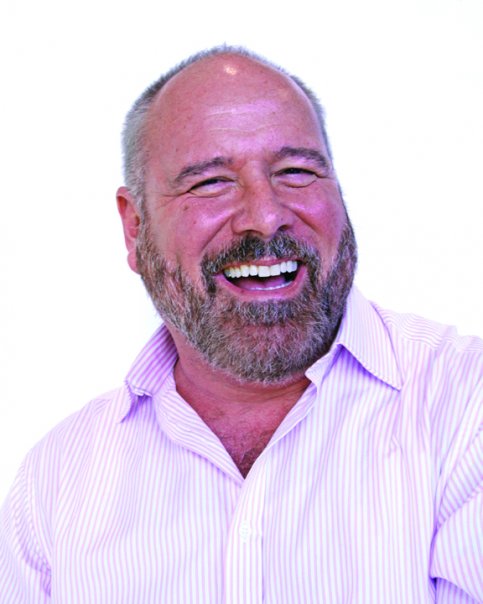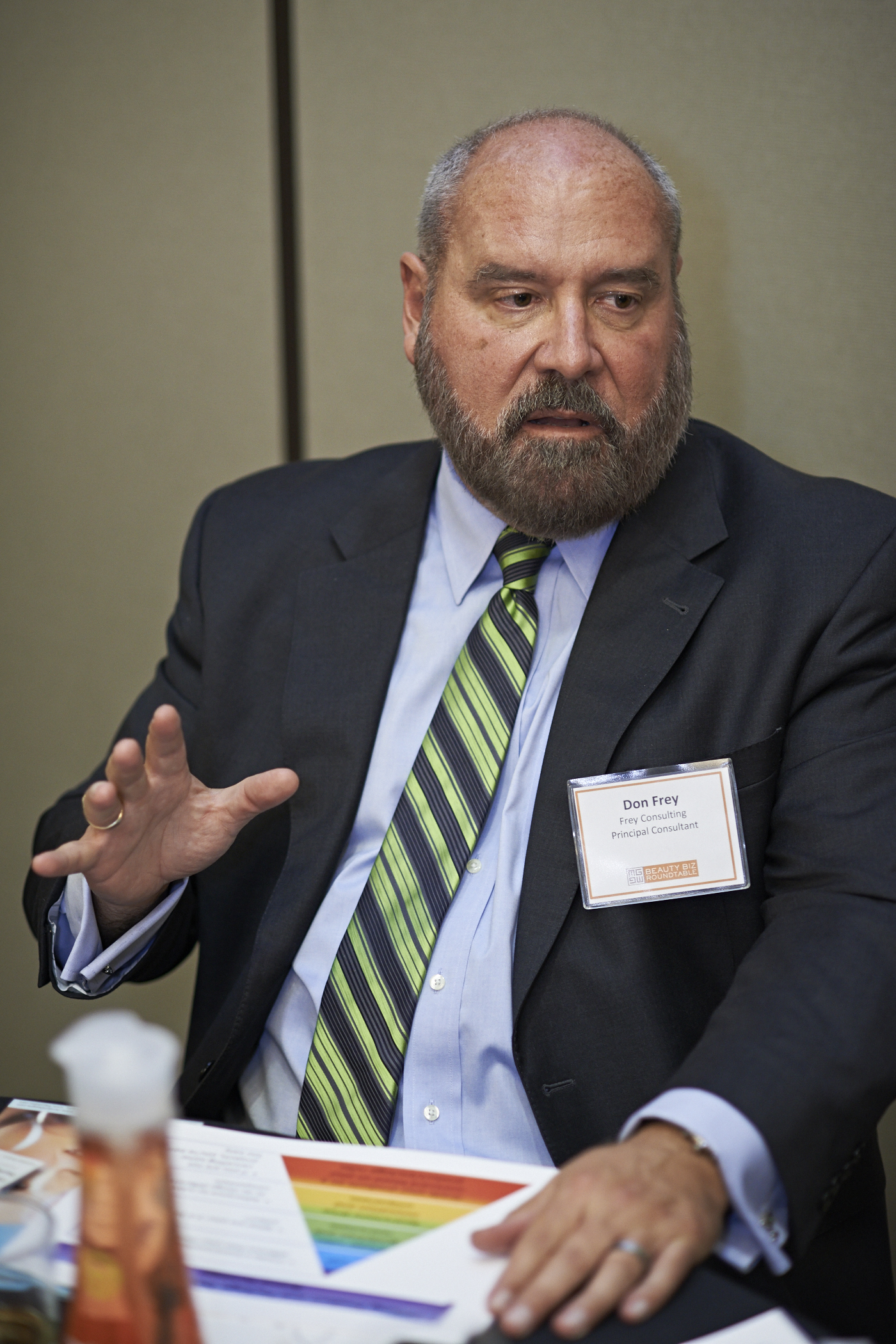December 3, 2013
BBR10 Thought Leader Q&A: Don Frey on “Building a Product & Package Strategy for Beauty Brands”
December 3, 2013
BBR10 Thought Leader Q&A: Don Frey on “Building a Product & Package Strategy for Beauty Brands”
When you combine major consumer brand experience with international business management, you end up with a lot of unique experiences and stories to tell.
Beauty Biz Roundtable 10 attendees were fortunate enough to hear these stories from beauty industry veteran – Don Frey.
 Don brings over 30 years of experience in the development of consumer products across a broad range of categories including skin care, personal care, fine fragrance, color cosmetics, home cleaning and laundry products. In that time, he developed product strategies to marry with a variety of brands: Pert Plus, Head & Shoulders, Cover Girl Cosmetics, Oil of Olay, Jafra, Avon Color, Anew, Skin-so-Soft, and Method. Don has managed this process both domestically and globally. By effectively matching the product promise with the brand personality, new products successfully grew these brands at 2-8x the market growth rate. In addition to product formulation, Don has managed the design and execution of the package in order to assure that all aspects of the product effectively deliver on the brand promise on shelf and in use. Currently, Don works as an independent consultant to assist companies with product strategy, technical issues, cost savings and claims reviews. He also works with Venture Capital groups and private equity firms to help establish valuations for target acquisition companies in the personal care and home cleaning spaces.
Don brings over 30 years of experience in the development of consumer products across a broad range of categories including skin care, personal care, fine fragrance, color cosmetics, home cleaning and laundry products. In that time, he developed product strategies to marry with a variety of brands: Pert Plus, Head & Shoulders, Cover Girl Cosmetics, Oil of Olay, Jafra, Avon Color, Anew, Skin-so-Soft, and Method. Don has managed this process both domestically and globally. By effectively matching the product promise with the brand personality, new products successfully grew these brands at 2-8x the market growth rate. In addition to product formulation, Don has managed the design and execution of the package in order to assure that all aspects of the product effectively deliver on the brand promise on shelf and in use. Currently, Don works as an independent consultant to assist companies with product strategy, technical issues, cost savings and claims reviews. He also works with Venture Capital groups and private equity firms to help establish valuations for target acquisition companies in the personal care and home cleaning spaces.
Please share 3 key points from your Roundtable discussion on “Key Steps to Building a Product and Package Strategy to Complement Your Brand.”
- Create a brand product persona that is uniquely your brand including rules, quirks and passions.
- Use rules and restrictions to drive innovation in your formula and package design. Necessity is the mother of invention, so be very tough on yourself when you break a rule.
- Use the persona and rules as a benchmark to evaluate projects and assure they bring additional clarity to your brand. If you don’t cancel a few projects because they don’t live up to your brand, you are being too easy on yourself.
Please tell us about your career path/progression. The road to… where you are now? How did you get started?
My career has really had quite a few twists and turns. I studied Chemical Engineering in college but quickly figured out that I didn’t want to work in a chemical plant or oil refinery. Fortunately, P&G came recruiting on campus, and I discovered the world of consumer goods. P&G was a great training ground which gave me great fundamentals as well as a chance to live and work in Japan for two years. It also took me from personal care into beauty when they acquired Noxell (Cover Girl cosmetics and Noxema), and I got moved into that organization. From there I learned that I really preferred working in smaller companies where people were empowered to make decisions, so I went to work for Jafra, then Avon and finally Method Products. Working at a start-up is so energizing. I learned so much about green chemistry, design, design thinking, and just plain business P&L. Now I am consulting and helping small companies that need the experience of a seasoned executive to attain their next level without having to hire an executive full time.

Don Frey at his BBR10 roundtable discussion on “Key Steps to Building a Product and Package Strategy to Complement Your Brand”
You have experience managing international projects in China, Brazil, Poland, and Japan. What is your advice in working with international projects and managing international teams?
When you’re working overseas, communication is generally the biggest obstacle. Since English is usually a 2nd language overseas, it’s crucial to maintain clear written & oral communication. When conducting business meetings overseas, make sure to leave enough time for questions at the end. I also highly recommend signing up for cross-cultural training prior to your travels. It’s very important to understand the unique attributes, language, and cultural norms in business organization and management of the country you’re doing business in.
During my experience living and working overseas, I was fascinated with how culture played a key role in how consumers purchased and viewed beauty products. In Europe, especially in Germany, women used beauty products that their mothers used since beauty was imprinted at a very early age. In Japan, a woman’s appearance is taken into consideration in all social interactions from dropping off her kids at school, grocery shopping, and of course at the workplace. Here in the U.S., I find it interesting that women use beauty products for other women – it’s more important to get that approval from another woman whether it’s a friend, family member, co-worker, or even a stranger, than from a man!
Why did you choose this career? Why the beauty industry?
I basically fell into the beauty industry at the start of my career. My first assignment out of school was to do formulation work for the product that eventually became Pert Plus. What I found that I loved was that although I was technical, regular people cared about the work I did since these were products they used on themselves every day. This is a great business for technical people who aren’t bookish and want to see the results of their work in their friend’s and family’s homes.
Who or what are your biggest career influences?
The two years I lived in Japan working for P&G and the five years I spent at Method have had the biggest effect on me. I was fortunate enough to be in Japan at the height of their technological breakthroughs in cars, electronics, fashion, and beauty. It was an exciting time to be there! Living and working there was such an eye-opener. I learned how little is truly instinctual to humans and how much is cultural. You didn’t get a lot diversity growing up in the Midwest in the 60’s and 70’s. At Method, I learned just how fun work could be. You spend so much of your life at work, so it’s great to finally be in a workplace where you can truly be yourself. By not editing yourself, you end up being far more creative and strive for excellence. It was at Method where I enjoyed a work/life balance and where I learned about cause marketing and the importance of creating products that made a difference in our environment.
What attributes make a great leader? Tell us about your leadership style.
For me, leadership is a balance between rigor and empathy. A leader needs to provide his team with a very clear sense of direction. I call it the North Star – it’s the ideal of what you are striving to achieve but you don’t know how to get there yet. This allows people to make decisions and determine if what they are doing is moving the company toward the North Star or away from it. Leaders also need to set clear priorities. If you are working on more than four priorities, you are not accomplishing any of them. Leaders are often afraid that if something isn’t a priority that nothing will happen. People are generally motivated to do the right thing if you treat them with respect. By not making everything a priority, you allow people the opportunity to not only achieve what you want them to focus on, but then to surprise with an additional accomplishment or two. Finally, recognize and celebrate good work. Managers often focus on the negative, but people get so motivated when they are recognized for their work. It doesn’t have to be money or a promotion – sometimes a simple “Wow! That was really a nice job you did on that start-up. I really appreciate it.” is what makes people go home and look forward to coming to work the next day.
What kinds of qualities do you look for in an employee/when hiring a candidate/someone to join your team?
Commitment. Is this person coming here because they truly believe and want to be involved with the brand, or is it something they think will look good on their resume? Particularly when you are hiring for a small organization, you need someone who is willing to look around and do what needs to get done without asking for permission. Give me someone who gives their heart and soul over the brainiac who is too good to empty a waste basket or clean a dish.
BBR10 Thought Leader Q&A: Jan Lombardo, President of GO SMiLE, Inc.
BBR10 Thought Leader Q&A: Michelle Sorro, former on-air host at HSN, Inc.
BBR10 Thought Leader Q&A: Charlie Perer, Partner at Intermix Capital Partners
About the Beauty Biz Roundtable Series
Hosted by Mazur Group, the Beauty Biz Roundtable (BBR) series brings together 100 Mid to Senior Level Beauty Executives in a roundtable format that fosters networking and idea sharing. This is not a lecture or panel discussion. Attendees are given the opportunity to sit down in small group settings with industry peers. Past BBR attendees and Thought Leaders have come from every major beauty company here in the West including Stila, Dermalogica, John Paul Mitchell Systems, Neutrogena, Murad, Urban Decay, CND, P&G, Josie Maran, Intelligent Beauty, Sexy Hair Concepts, boscia, MOR Cosmetics, OPI, Smashbox, Sexy Hair Concepts, Orly International, beautylish.com, and more. To see exclusive coverage of BBR events, visit Mazur Group’s YouTube channel at: http://www.youtube.com/user/mazurgroupla

